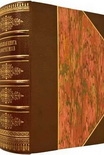Coconut Chaos, Diana Souhami [leveled readers TXT] 📗

- Author: Diana Souhami
Book online «Coconut Chaos, Diana Souhami [leveled readers TXT] 📗». Author Diana Souhami
The Tundra Princess began to roll mightily. I banged against cabin furniture but knew that even with a damaged bilge keel this ship was untroubled by a force eight gale. I lay on my bed for safety and thought of the Bounty on its seemingly mundane breadfruit mission to Tahiti. The storms at Cape Horn … storms of wind, hail, sleet and tremendous waves, where the crew kept a fire alive day and night to dry their clothes, and the ship ‘began to complain’ and needed pumping every hour, and the decks were so leaky that hammocks had to be dried in the great cabin where all the plant pots were. I thought of the crew’s relief when, after struggling for thirty days in this tempestuous ocean, Bligh turned the ship and headed east for the Cape of Good Hope. Bligh had no radar, email or satellite phone – no communication with anyone except a prayer to a god who was not often there …
Raja Arjunan, the second officer, knocked on my door with a lifejacket and a safety familiarisation card. The radar screen showed we were in the middle of the storm, but nothing bad would happen, Raja said, because the gods were caring for this ship. But if there was an emergency I should muster on the boat deck by lifeboat number one. I’d be given a thermal suit and high-protein biscuits. The worst weather experience he’d known had been on a voyage from India to New York transporting marble for the twin towers memorial. A forecast from America warned of a hurricane. They’d gone north to avoid it but it changed direction and they steered into its eye.
He talked of the qualities that make a good captain. Because of the close proximity of shipboard life, the interdependent community and the perilous dangers, the captain, Raja said, must above everything be a manager of men. Politeness mattered, and encouragement. I thought of the words of Fletcher Christian’s brother Charles, how ‘jarring Discordancy’ and ‘repeated Acts of Irritation and Offence’ were enough ‘to change the Disposition of a Lamb into That of an Animal Fierce and Resentful’. Raja told me what a good captain Sanjeet Dutt was and how readily the men went to him with any problem. He listened, was fatherly, humorous and fair. He let them make decisions and have their freedom. They could send and receive email and use the satellite phone. He held lots of parties on board with barbecued food, dancing and fair shares of Hindi, Goan, Punjabi and Western music. On a voyage when the cook was hopeless he gave him a lot of time off, then helped the crew prepare their own food. He was decisive without being arrogant and had no air of superiority, rather he behaved as a humble man and did not flaunt his rank.
16
Bligh omitted from his journal incidents that didn’t show himself as efficient and considerate, but his sailing master, John Fryer, claimed he was as tyrannical in the open boat as on the Bounty, that his chief concern was his own survival and, despite all the weighing with pistol shot and ‘Who shall have this?’ palaver, he took more bread for himself.
Bligh had an impenetrable self-regard and his underlying contempt and aggression made men hate him. He believed, rightly, that he showed his mettle in adversity. He achieved the extraordinary feat of reaching Timor with all the crew alive, in an ill-equipped boat, overloaded with men, on a journey without maps across violent seas. ‘Wonderful as it may appear,’ he wrote in his log, ‘I felt neither extreme hunger nor thirst. My allowance contented me knowing I could have no more.’ He broke his bread into slivers, dipped each bit in salt water and chewed it umpteen times to make it last longer.
He reached the coast of Australia after four horrendous weeks on 28 May 1789 – the same day as Christian in the Bounty reached Tubuai. The boat almost capsized as the men searched in high winds for an opening through the Great Barrier Reef. David Nelson the botanist was so weak he couldn’t move. He had ‘violent heat’ in his bowels and he couldn’t see. Bligh fed him morsels of bread soaked in wine. Within the calm of the reef they chanced on an uninhabited islet some two miles wide. As they pulled the boat ashore, one of the gudgeons broke from the rudder:
This if it had happened at sea would probably have been the cause of our perishing as the management of the boat could not have been so nicely preserved as these very heavy seas required. I had often expressed my fears of this accident and that we might be prepared for it had taken the precaution to have grummets fixed on each quarter of the boat for oars; but even our utmost readiness in using them, I fear would not have saved us. It appears therefore a providential circumstance that it happened at this place, and was in our power to remedy the defect; for by great good luck we found a large staple in the boat that answered the purpose.
The men made a fire by using a magnifying glass. They ate oysters and, against Bligh’s advice, unknown berries. They’d observed birds eating them and though they feared the effects no one died. They saw bees, wasps, lizards and the tracks of a kangaroo. Bligh named the place Restoration Island, because with food, warmth and sleep the men were restored, and





Comments (0)